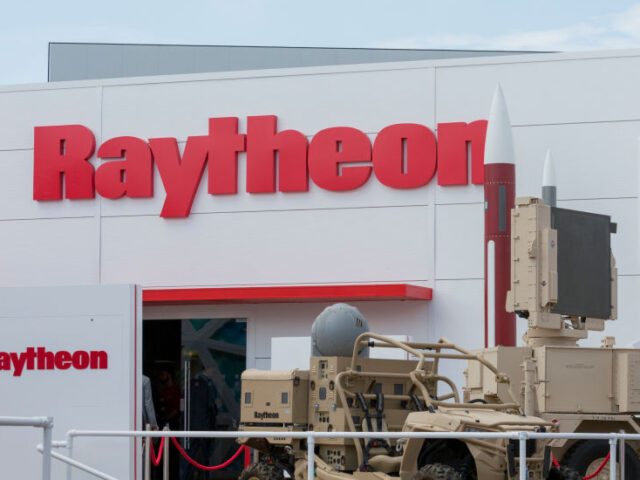An open letter signed by “46 foreign policy experts” calling for more arms shipments to Ukraine published in POLITICO failed to mention ties of nearly half of the signatories to the defence industry, allegedly glossing over conflicts of interest, the Washington-based Quincy Institute for Responsible Statecraft claimed.
On June 5th, the neo-liberal POLITICO news website published an open letter entitled ‘Ukraine Needs a Roadmap to NATO Membership ASAP‘, calling for Western leaders at the NATO summit in Vilnius, Lithuania this week to commit to supplying Ukraine with weapons, fighter jets, and tanks in “sufficient quantities to prevail on the battlefield”.
The letter argued that Western leaders should help facilitate a “comprehensive transition” of the weapons systems being used in the war against Russia up to “NATO standards”.
“The focus should be on the transition to Western weapons systems; creation of a modern, NATO-compatible air and missile defense system; creation of a medical rehabilitation system for wounded soldiers, as well as a system for soldier reintegration into civilian life and a comprehensive demining effort,” the letter stated.
Although POLITICO listed the names of the 46 ‘foreign policy experts’ and claimed to have outlined their “affiliations”, the Quincy Institute for Responsible Statecraft — which argues for a less interventionist U.S. foreign policy — claimed that at least 21 of the signatories currently have connections to the military-industrial complex that were left unmentioned by the news outlet.
Quincy Institute Senior Advisor Eli Clifton writing for Reasonable Statecraft noted that “support for increasing Western military aid to Ukraine is not a view exclusively held by those with direct or indirect links to the weapons industry, but signatories of the letter are noticeably embedded in the financial umbrella of institutions and businesses with direct financial ties to some of the world’s largest weapons firms.”
The very first signatory of the letter was Stephen E. Biegun, which the POLITICO website described only as a “former U.S. deputy secretary of state,” while failing to mention that he also currently serves as a senior vice president of global public policy at Boeing, one of the largest weapons and military hardware producers in the world.
Boeing’s website describes Beigun’s role as being “responsible for advising and executing on Boeing’s global public policy matters in support of the company’s priorities and optimizing relationships with key stakeholders in the U.S. and around the world. He is also a member of the company’s Executive Council.”
Another to have their defence industry affiliations overlooked was Ret. Gen. Wesley Clark, who led the President Clinton-ordered NATO bombing campaign of Yugoslavia in the Kosovo War dubbed Operation Allied Force. The article describes Clark as a “U.S. Army, 12th Supreme Allied Commander, Europe; senior fellow at the UCLA Burkle Center” while failing to mention his role as a senior board and company adviser at Vaya Space, which stated that Clark was hired to “support investment in and expansion of Vaya Space’s new technologies to the highly attractive Space (launch) and Defense (strategic and tactical missile) landscape.”
The investigation from the think tank also noted that numerous signatories have roles at the Atlantic Council think tank, which is funded in part by some of the top American arms manufacturers, including Boeing, General Dynamics, Lockheed Martin, Northrop Grumman, and Raytheon.
One such example noted by the publication was ex-George W. Bush diplomat Paula Dobriansky, who was merely described by POLITICO as “Former under-secretary of state for global affairs”, despite her now serving as the Vice Chair of the Atlantic Council’s Scowcroft Center for Strategy and Security.
The Council claimed that opinions expressed by Ambassador Dobriansky, nor any of its other fellows or experts are influenced by the think tank, which claims to be politically neutral. The director of strategic communications at the Council, Richard Davidson went on to assert that the ambassador does not receive any direct income from the Council.
However, while many experts that work with the Atlantic Council, or indeed other prominent think tanks in Washington may not receive a check from the institution itself, they are often rewarded in other ways, such as with increased speaking fees on the D.C. circuit.
Other organisations funded by military arms producers to have sponsored some of the signatories of the POLITICO letter, according to the Quincy Institute included the George W. Bush Institute, the Hudson Institute, the McCain Institute, the Center for Strategic and Budgetary Assessments, and the Center for a New American Security.
In response to allegedly failing to disclose such connections, a POLITICO spokesman said: “This is a public statement by 46 well-known public figures and foreign policy experts outlining their position on NATO membership for Ukraine. The signatories are listed by name and title so that readers can form their own conclusions based [sic] the array of professional experiences each signatory brings to the discussion.”

COMMENTS
Please let us know if you're having issues with commenting.